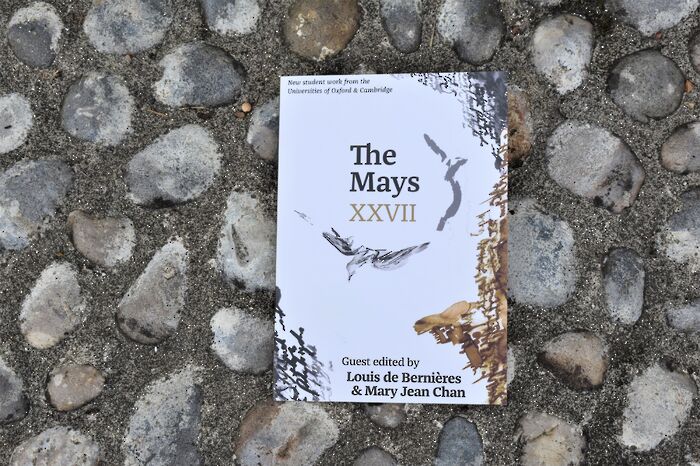How easy is translation when you don’t speak the language?
Konstantinos Doxiadis relates his experience translating from Polish, a language he doesn’t speak

‘Translation’, for a long time, meant nothing more to me than the replacement of words in one language with those in another. The subtleties of idiom, of the tone and atmosphere which each language lends (and which are not always replicable) did not occur to me. Nor could I fathom the musicality that some claim can be lost in the process. It was not until I tried my hand at translating verse in Greek (my mother tongue) that I started to run into this problem.
My first experiments were with Cavafy, the influential Egyptiot Greek poet who wrote in a mixture of ‘katharevousa’ and ‘demotic’ Greek (the ‘literary’ and ‘everyday’ versions of the language respectively). Historical in theme, and adopting the ‘prose poetry’ style popular in Greece at the time, his work was an ideal starting point.
Initially, I attempted to retain the linguistic peculiarities of his speech, introducing English archaisms, and multiple syntactic inversions, but the result was just clumsy and pretentious. Brushing aside this first failure, I decided to abandon this duality in the language, and simply rewrite the poems in the vernacular. The translations were certainly better than before, but glaring flaws were still present. Reading the poems out to non-Greek-speaking friends, I met with feigned interest where there should have been excitement, and slight ‘humphs’ of recognition at instances of great psychological insight. I had demoted Cavafy to the commonplace, and was completely unable to understand how or why. Ironically enough, the answer came to me when I decided to start translating from Polish.
This was probably the first time I had forced myself to think while translating
Although I was utterly ignorant of the language, I have been consistently drawn to its great poets. Szymborska, Milosz and Mickiewicz have all become favourites, but it was the latter that I decided to tackle. For a long time, I was particularly drawn to a short poem of his titled ‘The Castle Ruins in Balaklava’. But, wherever I searched, I seemed to find a wildly different translation. Some writers focused on the persisting beauty of the castle ruins, and others on the melancholy of deterioration. I wanted the truth, or at least, vague consensus. Certain that I was capable of unearthing it, I decided to try my hand at translating the poem.
With Google Translate and a clean sheet in front of me, I embarked on the arduous process of transcribing the piece to English, word by word. The result was disastrous. For reference, the first line went like this: ‘These locks broken in goaf beige governance’. Not very catchy, right? But, for the first time while translating, I felt free. Perhaps because I had no clue what the squiggly dashes and lines signified, and perhaps because I couldn’t even pronounce Mickiewicz’s name properly, I felt no duty to remain faithful to the source. After all, I spoke no Polish, so who could blame me for inaccuracies?
The first step was to clear some of the verbal clutter. ‘Locks’, ‘broken’ and ‘governance’ were condensed to ‘castle ruins’, and the rest of the mess I had created slowly started taking form. By the end of this second transcription, I had something resembling badly written prose. It was an improvement, to be sure, but still nowhere near ready. The piece lacked force, consistency and tone. It was simply hollow and weightless.
But it was here that my ignorance of Polish came to the rescue. Knowing that I could not discern the subtle linguistic peculiarities in the source, I simply started cutting and rewriting. Picking out what I felt to be the key themes, lines were rearranged, stanzas developed, and ideas jettisoned and introduced. I threw out some repetitions that I couldn’t handle, and then, after much flicking through the thesaurus, grew fed up and introduced a few repetitions of my own.
I wanted the truth, or at least, vague consensus
By this stage, my efforts resembled quite comprehensible verse. The voice was consistent, the writing compact, and even the narrative progressed naturally, painting a picture without any unnecessary strokes. Certainly, it didn’t replicate all of Mickiewicz’s formal structures, and I doubt he would have approved, but I had taken a poem in Polish, and turned into another language. In other words, it was a legitimate translation.
Reflecting on the process, it wasn’t that difficult to figure out why. This was probably the first time I had forced myself to think while translating. Rather than switching my mind off and replacing words from one language to another, I had been forced to write. To take a roughly composed piece of chaos and give it beauty and order.
Perhaps what I mean to say is that it’s easy to grow complacent when you believe some rigid structure exists to support you. That all you need to do it lay back and let your hands do all the work. Sometimes, knowing less can spark you into action, and when it does, the result is so much greater.
 News / SU reluctantly registers controversial women’s soc18 December 2025
News / SU reluctantly registers controversial women’s soc18 December 2025 Features / Should I stay or should I go? Cambridge students and alumni reflect on how their memories stay with them15 December 2025
Features / Should I stay or should I go? Cambridge students and alumni reflect on how their memories stay with them15 December 2025 News / Dons warn PM about Vet School closure16 December 2025
News / Dons warn PM about Vet School closure16 December 2025 News / Cambridge study finds students learn better with notes than AI13 December 2025
News / Cambridge study finds students learn better with notes than AI13 December 2025 News / Uni registers controversial new women’s society28 November 2025
News / Uni registers controversial new women’s society28 November 2025










